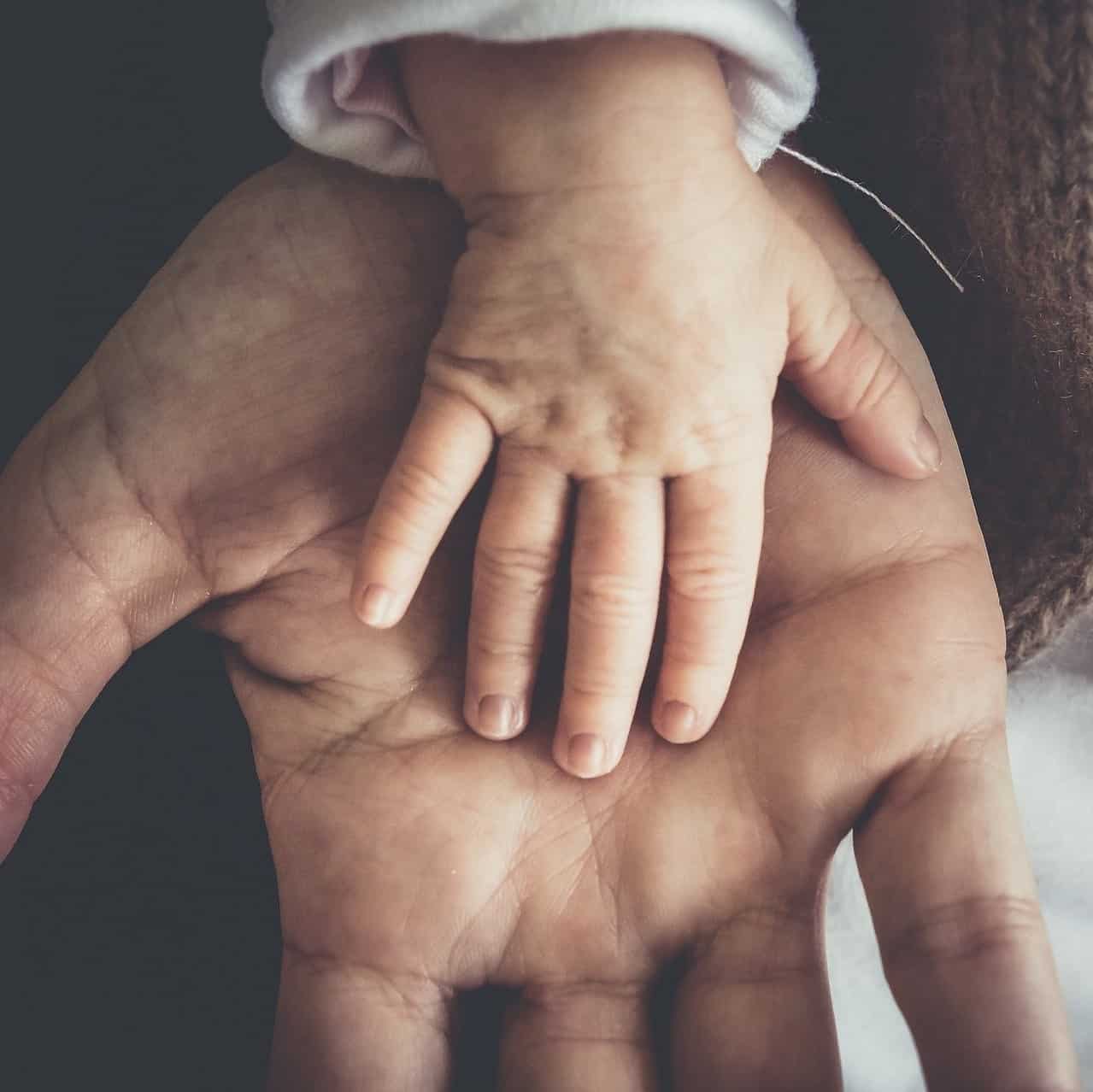With an increasingly hectic lifestyle and the demands of parenting, practising a more mindful approach to our daily lives and choosing to take time for restorative meditation can enhance your mental wellbeing, as well as improve the quality of the time you and your loved ones share together.
Being fully present while parenting helps you to free yourself from distraction and improves your awareness of your child and yourself. Over time and through regular practise, you will become more attentive and have a deeper understanding and appreciation for your shared interactions.
1. Pause and Enjoy the Moment
With so many pressures as a parent, we can easily become overwhelmed with what is expected of us, or what we expect of ourselves. The everyday family routine of calling loved ones, going to the supermarket, heading to after school clubs and cooking supper all contribute to what can often feel like a chaotic existence. These day to day demands can distract us from pausing, and enjoying a moment shared by you and your child.
In our latest blog, we’ve looked at ways you can become more mindful while parenting – offering techniques which help to introduce calm, clarity and perspective.
2. Unplug
We’re constantly connected, and although this allows us to keep in regular contact with friends and relatives, it can often be at the detriment to the time spent with our children. Choosing to unplug or switch off your device can help to remove some of the distractions we are faced with while parenting.
Limit Distractions
This is equally as important for parents as it is for children. To promote more mindful interactions, children also need to be free from technological distractions. Limiting television, tablet or phone use can help to create an environment that encourages you to be mindful of one another and your relationship.

3. Undivided Attention
Mindfulness is often considered to be having the ability to be present in the moment, rather than sailing through on autopilot. If you’ve dedicated part of your day to spending time with your child, simply being or completing an activity that you both enjoy, aim to give it your full attention.
Immerse Yourself in the Moment
Immerse yourself in the moment and try to notice each development during your time spent together. Being fully present in this way can be difficult for those who haven’t previously practised it; give yourself time, as it can take time to develop and perfect the skill.
4. Take Breaks and Time for Yourself
To give yourself the best chance at mindful parenting, you must take regular breaks and carve out time for yourself. With a chaotic lifestyle, regularly prioritising this will benefit not only you, but also your child. Rather than reacting on impulse or in a frantic manner, you’re more likely to have maintained a healthy headspace which allows you to parent positively.
5. Explore Your Child’s Perspectives
Acknowledging that you’ve explored and tried to understand your child’s perspective can help to make their contribution feel valued, which in turn, will help to strengthen the connection between you both.
Gain a Deeper Understanding
By exploring their perspective, you’ll gain a deeper understanding of how they feel, as well as gain an insight into their behaviours. As you practise this technique, your child will begin to replicate this sense of empathy, helping them to become more mindful themselves and of others around them.
6. Create a Space for Meditation
Mindfulness and meditation go hand in hand, with one helping to achieve the other. Breathing techniques and yoga, noting and visualisation are just some of the different types of meditation used by those who practise. We recommend creating a space within your home that is dedicated to meditation. A retreat of sorts, and a place where your mind can declutter and be still.

7. Meditate with Your Children
Meditation isn’t just for adults either; encouraging your child to enjoy a few minutes of meditation with you each day will help them on your collective mindfulness journey.
The Benefits of Mindful Parenting
Taking the time to slow down like this and be more mindful in all aspect of live can provide a number of benefits:
Reduced Stress
Rather than constantly rushing from one thing to the next, the goal of mindfulness is to slow yourself down and become more aware of the present moment. As such, a mindful approach to parenting can greatly reduce the stress that is often experienced at times when parenting becomes difficult and serve to transform our perspective on certain events.
For example, instead of letting your frustrations take over during your child’s tantrum, being mindful will enable you to recognise the emotions you are feeling without having to act upon them, helping you to remain cool and calm instead of reacting.
Enlightened Outlook
Sometimes, routines can seem like a chore, especially when they are repeated on a regular basis. However, as a parent, practising mindfulness can help you achieve an enlightened outlook and learn to appreciate even the most menial tasks and activities.
For instance, your child may have a favourite film that they like to watch on a daily basis, during which you often find yourself zoning out. But, instead of losing interest, being mindful will help you to become more observant at that moment and feel your child’s enjoyment by taking the time to detect their emotions and understand those feelings rather than letting your thoughts wander to the next task in hand.
Mindful parenting is known to have a positive impact on your child, and having the tools and guidance to hand will allow you to support them as they’re developing. Helping you through stressful situations or moments of conflict, it can help bring calm and clarity to your home.
Here at St Peter’s private school, Devon, we appreciate the importance of mindfulness and meditation, for both our pupils, their parents and our teachers.
Paws B mindfulness teaching sessions are run in our school. The Paws B Mindfulness Programme stands for ‘Pause, Breathe and B.’ It is designed for the younger age group and St Peter’s has rolled it out in Year 3.
Why not get in touch with us to discuss how the curriculum incorporates this vital aspect of personal development?








